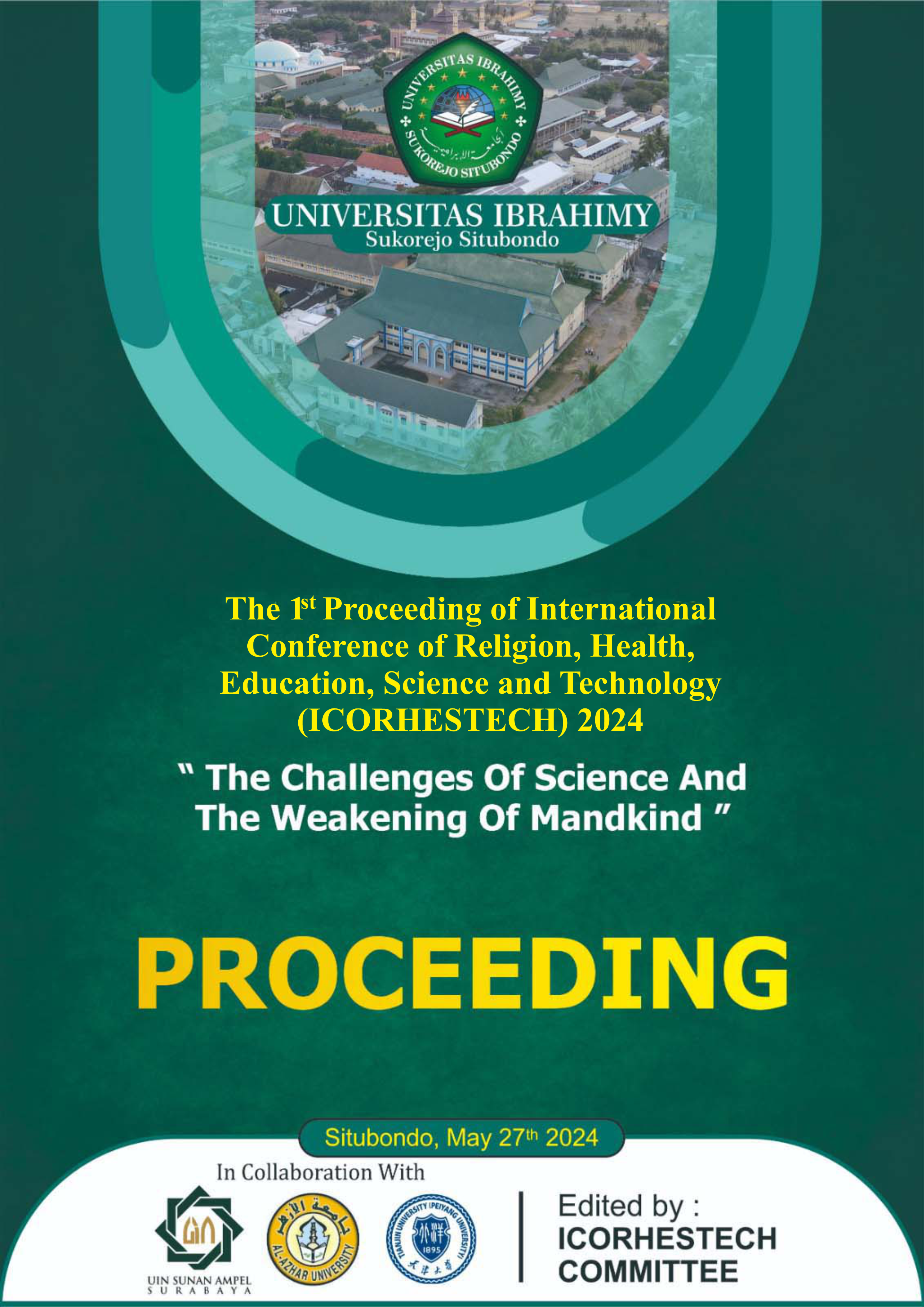Dynamics of Family Caregivers in Caring for People with Disabilities Congenital: A Systematic Literature Review (SLR)
Abstrak
The role of family caregivers in caring for people with congenital disabilities has a significant impact on the individual's well-being. However, there has been no comprehensive systematic literature review regarding the dynamics, challenges, and support provided by family carers in this context. Therefore, we need a comprehensive literature review to fully comprehend the role of family carers in providing care for individuals with congenital disabilities. This research aims to conduct a systematic literature review to examine the dynamics of the role of family carers, the challenges faced, and the type of support needed in caring for people with congenital disabilities. Thus, the aim of this research is to compile a comprehensive and in-depth picture of this phenomenon based on existing literature. We use a systematic literature review as the research method, searching, selecting, and critically analysing scientific articles relevant to the topic under study. This study also applied strict inclusion and exclusion criteria to ensure the accuracy and validity of the literature review results. This systematic literature review emphasizes the importance of fully understanding the role of family caregivers in caring for people with congenital disabilities. The results of this review can provide a basis for further research and development of interventions aimed at improving well-being and support for family carers in this context.
Referensi
Arabis-Quijote, K., Mahinay, S. J. . D., Silvano, L. M. R., Anito, K. N. S., & Flauta, R. L. (2023). Life Journey With Somebody Special: the Highs and Lows of Parents of Children With Disability. European Journal of Special Education Research, 9(1), 115–133. https://doi.org/10.46827/ejse.v9i1.4720
Arulampalam, Kunaraj, P., Chelvanathan, Bakar, AA, A., Yahya, I, & Skandar. (2023). Gambaran Distribusi Frekuensi Faktor Risiko Kelainan Kongenital Pada Bayi Baru Lahir Di Beberapa Lokasi Di Wilayah Indonesia Periode Tahun 2009 Sampai Dengan Tahun 2018. Journal of Engineering Research.
Benešová, P., & Sikorová, L. (2022). Evaluation of stress of parents of children with disability and without disability-pilot study. Pielegniarstwo XXI Wieku, 21(2), 102–105. https://doi.org/10.2478/pielxxiw-2022-0018
Claudia, S., & Sandu, M. L. (2020). Anxiety and depression in parents of disabled children. Technium Social Sciences Journal, 3(1), 141–150. https://doi.org/10.47577/tssj.v3i1.92
Ekowarni, P. D. E., Irwanto, P., Dr. G. Sri Nur Hartanto, S.H., L. M., & Aziz, K. . M. I. (2015). Menanggalkan kecacatan: upaya serius difabel indonesia menegaskan identitas. Jurnal Difabel, 2(2), 282. https://catalog.danlevlibrary.net/index.php?p=show_detail&id=15785&keywords=
Ergün, S., & Ertem, G. (2012). Difficulties of mothers living with mentally disabled children. JPMA. The Journal of the Pakistan Medical Association, 62(8), 776–780.
Haddaway, N. R., Page, M. J., Pritchard, C. C., & McGuinness, L. A. (2022). : An R package and Shiny app for producing PRISMA 2020-compliant flow diagrams, with interactivity for optimised digital transparency and Open Synthesis Campbell Systematic Reviews, 18,.
HARAZ, S. (2019). Disability of the Child - Factor of the Risk of Social Exclusion of Parents (Experimental Research of Constatation). Moldavian Journal for Education and Social Psychology, 3(1), 21–33. https://doi.org/10.18662/mjesp/07
Hartini, R. (2010). Enhancing role of family and social worker for children with disability. Child Poverty and Social Protection, 1–26.
Houle, J. C., & Berger, L. (2016). Children with disabilities and trajectories of parents’ unsecured debt across the life course. Social Science Research, 40(3), 727-741. https://doi.org/doi: 10.1016/j.ssreearch.2016.10.006
Islam, H. L., & Sudibyo, D. P. (2023). Social Capital dalam Upaya Pemberdayaan Penyandang Disabilitas Oleh Komunitas Difabel Slawi Mandiri di Kabupaten Tegal. 3, 151–165.
Kang, L. J., Palisano, R. J., Orlin, M. N., Chiarello, L. A., King, G. A., & Polansky, M. (2010). Determinants of social participation-with friends and others who are not family members-for youths with cerebral palsy. Physical Therapy, 90(12), 1743–1757. https://doi.org/10.2522/ptj.20100048
Kurniadi, Y U., et al. (2020). Penyandang Disabilitas di Indoneisa. Nusantara: Jurnal Ilmu Pengetahuan Sosial, 7(2), 408–420.
Lasco, G., Nuevo, C. E. L., Nolasco, M. L. P., Famaloan, F. R. A. N., Bundoc, J. R., Capili, D. I. S., & Bermejo, R. (2022). “It’s as if I’m the one suffering”: Narratives of Parents of Children with Disability in the Philippines. Acta Medica Philippina, 56(7), 30–42. https://doi.org/10.47895/amp.vi0.658
McMahon, S. M., Wilson, C. E., & Sharry, J. (2023). Parents Plus parenting programme for parents of adolescents with intellectual disabilities: A cluster randomised controlled trial. Journal of Applied Research in Intellectual Disabilities, 36(4), 871–880. https://doi.org/10.1111/jar.13105
Mitayani, & Purwoko. (2016). Faktor Risiko Timbulnya Kelainan Kongenital. Jurnal Penelitian Pendidikan Guru Sekolah Dasar, 6(August), 128.
Mumpuniarti, M., Diniarti, G., Prabawati, W., & Suparno, S. (2021). Family Nurture in the Social Skills Development of Children With Intellectual Disabilities Through Daily Activities. Cakrawala Pendidikan, 40(3), 625–636. https://doi.org/10.21831/cp.v40i3.43984
Muryatini, N. N., & Buana, I. K. S. (2019). Perlindungan Hukum Terhadap Anak Penyandang Disabilitas Yang Ditelantarkan Oleh Orang Tuanya [Legal ProtectioPerlindungan Hukum Terhadap Anak Penyandang Disabilitas Yang Ditelantarkan Oleh Orang Tuanya [Legal Protection for Children with Disabilities Aban. Jurnal Advokasi, 9(1), 56–66. https://e-journal.unmas.ac.id/index.php/advokasi/article/view/319
Naufal, W. I., & Rahmandani, A. (2020). Pengalaman Pengasuhan Ibu Yang Memiliki Anak Disabilitas Fisik Berprestasi: Sebuah Studi Fenomenologis Deskriptif. Jurnal EMPATI, 10(2), 122–133. https://doi.org/10.14710/empati.2020.27700
Paltrinieri, A., Hassan, M. K., Bahoo, S., & Khan, A. (2020). A bibliometric review of sukuk literature. International Review of Economics and Finance. https://doi.org/https://doi.org/10.1016/j.iref.2019.04.004
Scherer, N., Verhey, I., & Kuper, H. (2019). Depression and anxiety in parents of children with intellectual and developmental disabilities: A systematic review and meta-analysis. PLoS ONE, 14(7), 1–18. https://doi.org/10.1371/journal.pone.0219888
Shahdadi, H., & Mahmoudirad, G. (2022). The emergence of spiritual self-care in parents with disabled children. International Journal of Children’s Spirituality, 27(3-4), 176-194.
Tranggono, T., Jasmin, K. J., Amali, M. R., Aginza, L. N., Sulaiman, S. Z. R., Ferdhina, F. A., & Effendie, D. A. M. (2023). Pengaruh Perkembangan Teknologi Di Era Globalisasi Dan Peran Pendidikan Terhadap Degradasi Moral Pada Remaja. Bureaucracy Journal : Indonesia Journal of Law and Social-Political Governance, 3(2), 1927–1946. http://bureaucracy.gapenas-publisher.org/index.php/home/article/view/299
Wondemu, M. Y., Joranger, P., Hermansen, Å., & Brekke, I. (2022). Impact of child disability on parental employment and labour income: a quasi-experimental study of parents of children with disabilities in Norway. BMC Public Health, 22(1), 1–11. https://doi.org/10.1186/s12889-022-14195-5
##submission.copyrightStatement##
##submission.license.cc.by-sa4.footer##








